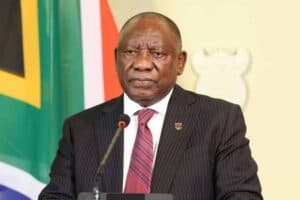Although South Africa has made a concerted effort to ramp up its renewable energy investment, the country continues to lag behind.

Thursday marks day 13 of the United Nations climate change conference (COP26), with a new report emerging that current global carbon dioxide emissions (CO2) are set to rebound to pre-Covid levels.
Overall, CO2 pollution this year will be just shy of the record set in 2019, according to the annual report from the Global Carbon Project consortium.
Although South Africa has made a concerted effort to ramp up its renewable energy investment, while downscaling coal-fired power plants, the country continues to lag behind.
All the while, the risk of significant temperature increases loom.
ALSO READ: World’s CO2 emissions already reaching record levels – and experts are very worried
SA needs support
President Cyril Ramaphosa said at COP26 that bold action needed to start with faster energy decarbonisation.
South Africa has an unhealthy dependence on high-emission fossil fuels, notably coal power, while embattled power utility Eskom continues to struggle to keep the delicate balance of maintaining old power stations, while keeping in mind their decommissioning.
Ramaphosa said in his speech that while energy transitions were integral to keep temperature increases down, “this transition must also be fair and just” – especially for developing nations.
“For many developing economies this requires massive investment in alternative energy sources and other infrastructure.
“It requires substantial support for workers and communities throughout the coal value chain who stand to lose their jobs as well as their livelihoods.
ALSO READ: Europe to give SA billions to help free country from coal and Eskom
“A just transition requires finance and support from wealthier nations to enable low- and medium-income countries to protect employment and to promote development.”
How successful South Africa’s rollout of renewable energy depends largely on the support it receives from developed economies, Ramaphosa said.
Funds on the cards
Earlier this week, South Africa received a much-needed boost in the form of an $8.5 billion (R131 billion) pledge from France, Germany, the UK, the US and the European Union.
While preparing for the COP26, South Africa submitted a revised Nationally Determined Contribution (NDC) to reduce domestic CO2 emissions to within a suitable target range, in line with the Paris Agreement.
This was decided on to be between 420 megatons of CO2 equivalent and 350 CO2 equivalent by 2030.
Ramaphosa said the billions in grants, loans and concessions would enable the country “to implement our ambitious goals and to develop a model for a just transition that we hope can be used elsewhere”.
“We are entering a brave new world bound together by our common destiny as humanity.
“We owe this to ourselves, to one another and to the future generations.”






